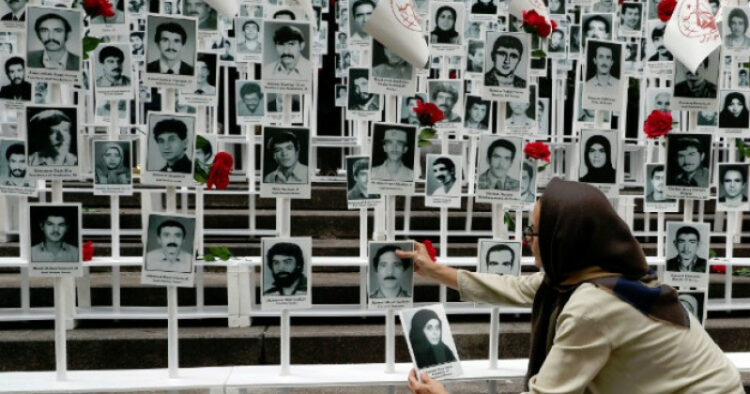
The Persecution of members from the Baha’i Faith community in the Islamic Republic of Iran has become a serious talking point around the world. The Baha’í Faith was originated in Iran and it is the place where one of the largest Baha’í populations in the world is located. The origins of the persecution stem from a variety of Baha’í teachings which are inconsistent with traditional Islamic beliefs, including the finality of Muhammad’s prophethood, and the placement of Baha’ís outside the Islamic faith. Thus, Baha’is are seen as apostates from Islam.
The United States Commission on International Religious Freedom (USCIRF) had recently condemned the alarming escalation of government measures targeting Baha’is in Iran on the basis of their faith.
On December 24, 2020, Branch 2 of the Revolutionary Court of Hormozgan Province issued a verdict against eight Baha’is in Bandar Abbas banning them from participating in religious gatherings and requiring them to attend five “sectarian counselling” sessions with professors at the Andisheh Sajjadieh Institute. The ruling comes in the wake of court decisions declaring it illegal for Baha’is to own land in the town of Ivel and excusing 11 perpetrators who destroyed 50 Baha’i houses in the town in June 2010 and seized the land on which they were built.
“The United States must work with like-minded governments to confront Iran’s severe persecution of the Baha’i community,” said USCIRF Chair Gayle Manchin. “We urge the incoming administration to raise these egregious religious freedom violations as part of any engagement with the government of Iran,” Gayle added.
Iran’s government labels the Baha’i faith as a “deviant sect” of Islam and has systematically persecuted the community for decades. Baha’is are restricted from pursuing education in Iran, and security forces regularly close down Baha’i businesses, raid Baha’i homes, and conduct mass arrests of Baha’is. Iran recently removed the “other” option from the religion category of its national ID cards, forcing Baha’is to either lie about their faith or be denied this critical form of identification. In December 2020, the U.S. House of Representatives passed H.Res. 823, a bipartisan bill that cited USCIRF’s reporting and condemned religious freedom violations against Baha’is in Iran.
“Iran’s restrictions on holiday observance and attempts to effectively ‘reeducate’ Baha’is place the country among the world’s most notorious religious freedom violators,” said USCIRF Commissioner Gary Bauer. “The United States must hold accountable Iranian government officials who view the vicious persecution of a peaceful religious minority as admirable rather than abhorrent, he added.
In its 2020 Annual report, USCIRF recommended Iran for designation as a “country of particular concern,” or CPC, under the International Religious Freedom Act (IRFA) for engaging in or tolerating systematic, ongoing, and egregious violations of religious freedom, as it has recommended every year since 2002. In August 2020, USCIRF released a factsheet on sanctioned religious freedom violators in Iran. In December 2020, the State Department announced it had redesignated Iran as a CPC. Recently, a German official had urged Iran to recognize the Baha’i as a religious community and for the rights of religious and ideological minorities to be respected.
Religious freedom in Iran is far from absolute. Conversion away from Islam (apostasy) is forbidden, with both converts and missionaries risking prison. Those seeking to start a new religious group (whether Muslim or not) face severe restrictions. The Baha?í Faith faces an additional, technical hurdle. Iranian law recognizes all those who accept the existence of God and the prophethood of Muhammad as Muslims. Bahá?ís accept both of these precepts; however, Bahá?ís recognize the Báb and Bahá?u’lláh as additional messengers that have appeared after Muhammad. Muslims, on the other hand, assert the finality of Muhammad’s revelation. Iranian law, therefore, treats Baha’ís as “heretics” rather than members of an independent religion, as they describe themselves
Baha’is had also accused Iran of targeting their community residing in Yemen. But the extent of Iran’s influence and role in the persecution of the Baha’i community in Yemen is unknown. The Baha’i representation at the United Nations accuses the Islamic Republic of encouraging and instructing Houthi officials to crack down on the Yemeni Baha’is. “Iranian involvement in the persecution of the Baha’is in Yemen is consistent with a general policy aimed at dealing with ‘The Baha’i Question’ as outlined in a once-secret 1991 government memorandum.”













Comments